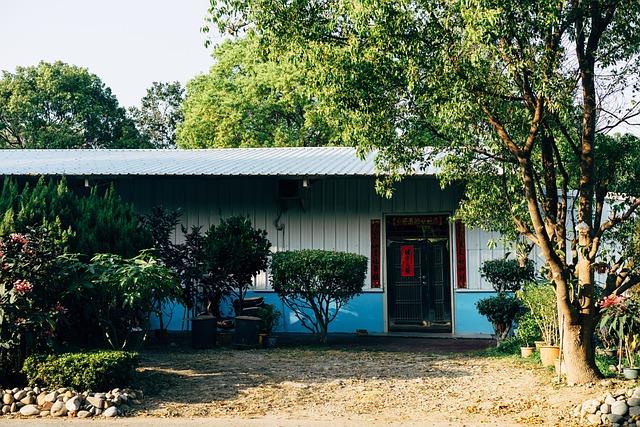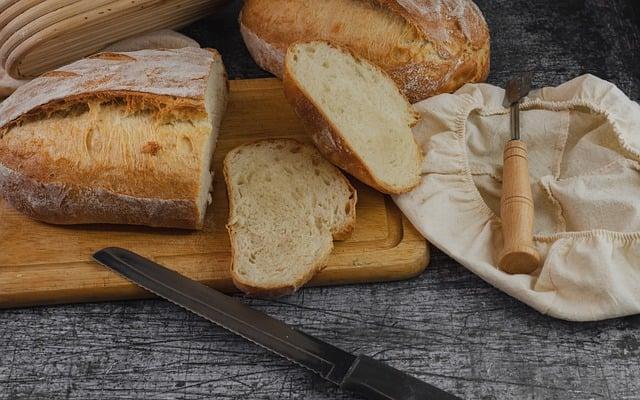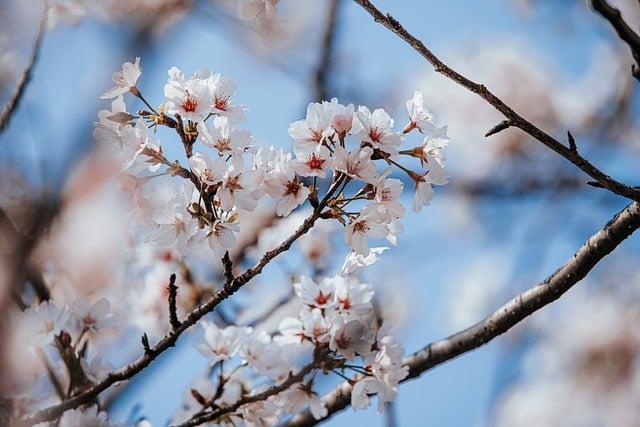In the heart of Taiwan, as the sun dipped below the horizon, the air filled with the scent of incense and the sound of laughter. Families gathered for the Lantern Festival, where colorful lanterns floated into the night sky, each carrying a wish. Nearby, the rhythmic beat of drums echoed from a temple, where worshippers honored their ancestors with offerings of fruit and tea. As the night unfolded, the vibrant traditions of Taiwan came alive—dragon dances, tea ceremonies, and the sharing of mooncakes—each a thread in the rich tapestry of a culture that celebrates both history and harmony.
Table of Contents
- Exploring the Rich Tapestry of Taiwanese Festivals
- Culinary Heritage: A Journey Through Taiwans Traditional Dishes
- Artisan Crafts: Preserving Taiwans Cultural Legacy
- Spiritual Practices: The Role of Religion and Belief in Daily Life
- Q&A

Exploring the Rich Tapestry of Taiwanese Festivals
Taiwan is a vibrant mosaic of cultures, and its festivals are a testament to this rich heritage. Each celebration is steeped in history, reflecting the island’s diverse influences from indigenous traditions, Chinese customs, and Japanese colonial legacies. The Lunar New Year, for instance, is a time when families gather to honor their ancestors, share sumptuous feasts, and partake in lively lion dances. Similarly, the Mid-Autumn Festival brings communities together to admire the full moon while enjoying mooncakes and lantern displays, symbolizing unity and gratitude.
Among the most colorful events is the **Taipei Lantern Festival**, where intricate lanterns illuminate the night sky, showcasing artistic creativity and cultural narratives. Another notable celebration is the **Dragon Boat Festival**, marked by thrilling boat races and the preparation of zongzi, sticky rice dumplings wrapped in bamboo leaves. Additionally, the **Ghost Festival** offers a unique glimpse into Taiwanese beliefs about the afterlife, featuring offerings and rituals to appease wandering spirits. These festivals not only highlight the island’s traditions but also foster a sense of community and belonging, inviting both locals and visitors to partake in the joyous celebrations.

Culinary Heritage: A Journey Through Taiwans Traditional Dishes
Taiwan’s culinary landscape is a vibrant tapestry woven from the threads of its rich history and diverse cultural influences. Traditional dishes reflect the island’s agricultural bounty and the fusion of flavors brought by indigenous peoples, Chinese immigrants, and colonial powers. Each meal tells a story, inviting diners to experience the essence of Taiwan through its unique ingredients and cooking techniques. **Street food** is a cornerstone of this heritage, with bustling night markets offering a plethora of options, such as:
- Beef Noodle Soup: A hearty dish that combines tender beef, flavorful broth, and chewy noodles.
- Oyster Omelette: A savory blend of fresh oysters, eggs, and sweet potato starch, often served with a tangy sauce.
- Stinky Tofu: A polarizing delicacy, fermented tofu that is deep-fried to crispy perfection, served with pickled vegetables.
Beyond street food, Taiwan’s traditional cuisine also showcases the artistry of home-cooked meals, where family recipes are passed down through generations. Celebratory dishes often feature seasonal ingredients, emphasizing the importance of harmony with nature. Festivals are marked by special foods, such as **glutinous rice dumplings** during the Dragon Boat Festival and **mooncakes** during the Mid-Autumn Festival. These culinary traditions not only nourish the body but also strengthen community bonds, as families gather to prepare and share meals, preserving the flavors of their heritage for future generations.

Artisan Crafts: Preserving Taiwans Cultural Legacy
In Taiwan, artisan crafts serve as a vibrant tapestry that weaves together the island’s rich cultural heritage and contemporary identity. Each handcrafted piece tells a story, reflecting the skills and traditions passed down through generations. From intricate ceramics that showcase the island’s natural beauty to delicate textiles that embody the spirit of local communities, these crafts are not merely products but living expressions of Taiwan’s history. Artisans often draw inspiration from their surroundings, utilizing materials such as bamboo, clay, and indigenous fibers, which not only highlight the island’s resources but also promote sustainable practices.
The preservation of these crafts is crucial for maintaining Taiwan’s cultural legacy. Local artisans participate in workshops and exhibitions, fostering a sense of community and encouraging younger generations to engage with their heritage. Some notable crafts include:
- Wood carving – A traditional art form that transforms local wood into intricate sculptures and functional items.
- Pottery – Renowned for its unique glazes and techniques, often inspired by the island’s landscapes.
- Paper cutting - A delicate craft that creates stunning designs, often used in festivals and celebrations.
- Traditional weaving - Utilizing age-old techniques to create beautiful textiles that tell stories of the past.
By supporting these artisans and their crafts, we not only celebrate Taiwan’s diverse cultural landscape but also ensure that these traditions continue to thrive in the modern world.

Spiritual Practices: The Role of Religion and Belief in Daily Life
In Taiwan, spiritual practices are deeply woven into the fabric of daily life, reflecting a rich tapestry of beliefs that coexist harmoniously. The island is home to a diverse array of religions, including Buddhism, Taoism, and folk traditions, each contributing unique rituals and customs. **Temples** serve as vibrant community hubs where individuals gather not only for worship but also for social interaction. The act of lighting incense, making offerings, and participating in festivals fosters a sense of belonging and continuity, connecting the present with ancestral traditions. This communal aspect of spirituality is particularly evident during major celebrations, where the streets come alive with colorful parades and rituals that honor deities and spirits.
Belief systems in Taiwan also emphasize the importance of personal spirituality, often blending elements from various religions to create individualized practices. Many people engage in **daily rituals** such as meditation, prayer, or the consultation of divination tools like **Taiwanese fortune sticks**. These practices serve as a source of guidance and comfort, helping individuals navigate the complexities of modern life. Additionally, the concept of **filial piety** plays a significant role, where honoring ancestors through rituals and offerings reinforces family bonds and cultural identity. This intricate interplay of religion and personal belief not only enriches the spiritual landscape of Taiwan but also shapes the values and behaviors of its people, making spirituality an integral part of their everyday existence.
Q&A
-
What are some traditional Taiwanese festivals?
Taiwan is rich in festivals, with some of the most notable being:
- Lunar New Year: A time for family reunions, feasting, and various cultural activities.
- Dragon Boat Festival: Celebrated with dragon boat races and eating zongzi (sticky rice dumplings).
- Mid-Autumn Festival: Known for mooncakes and lantern displays, celebrating the harvest and family unity.
-
What role does tea play in Taiwanese culture?
Tea is a cornerstone of Taiwanese culture, with a strong emphasis on:
- Oolong Tea: Taiwan is famous for its high-quality oolong tea, often enjoyed in traditional tea ceremonies.
- Tea Houses: Social hubs where people gather to enjoy tea and engage in conversation.
- Tea Culture: The practice of appreciating the aroma, taste, and aesthetics of tea is deeply ingrained in daily life.
-
What are some unique Taiwanese customs?
Several customs reflect Taiwan’s cultural heritage, including:
- Ancestor Worship: Honoring ancestors through rituals and offerings, especially during festivals.
- Street Food Culture: A vibrant scene where locals and tourists alike enjoy a variety of delicious street foods.
- Night Markets: These bustling markets are a staple of Taiwanese life, offering food, games, and shopping.
-
How does religion influence Taiwanese traditions?
Religion plays a significant role in shaping Taiwanese traditions, particularly:
- Folk Religion: A blend of Taoism, Buddhism, and local beliefs, influencing festivals and rituals.
- Temples: Numerous temples serve as community centers for worship and cultural activities.
- Rituals: Many customs, such as the burning of incense and offerings, are rooted in religious practices.
As we conclude our exploration of Taiwan’s rich tapestry of traditions, we invite you to embrace the island’s vibrant culture. From festive celebrations to culinary delights, Taiwan’s heritage offers a unique glimpse into the heart of its people.




